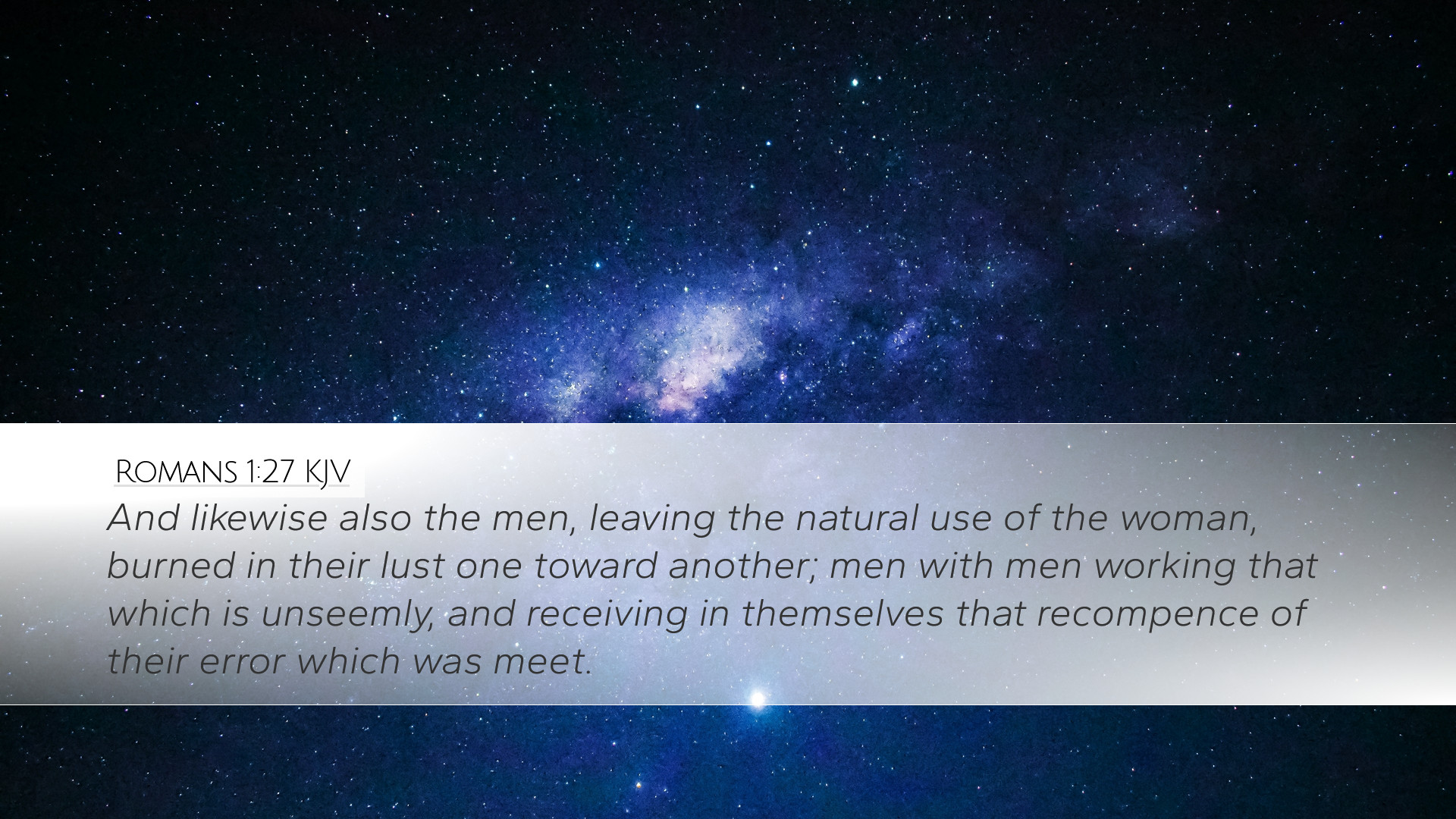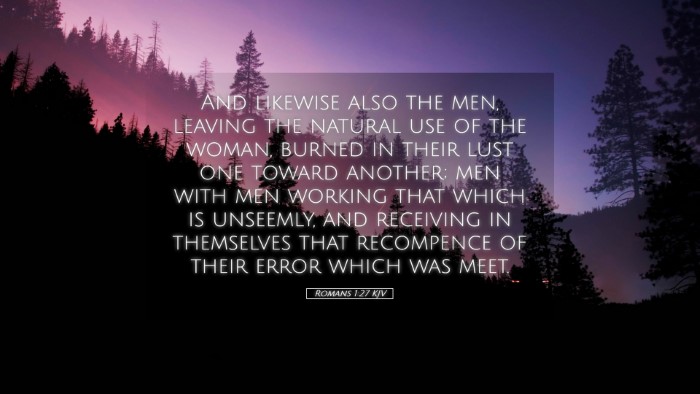Commentary on Romans 1:27
Romans 1:27 (KJV): "And likewise also the men, leaving the natural use of the woman, burned in their lust one toward another; men with men working that which is unseemly, and receiving in themselves that recompense of their error which was meet."
Contextual Overview
This passage forms part of the Apostle Paul's larger discourse in the first chapter of Romans, wherein he addresses the moral decline of humanity. It highlights a deviation from the natural order established by God, illustrating consequences that stem from such actions.
Insights from Matthew Henry
Matthew Henry emphasizes the concept of "natural use" as defined by God's design for human sexuality. He states that deviation from this design indicates a broader rebellion against God's authority. Henry critiques the passion described in the verse, likening it to extreme heat that consumes without consideration for the proper order of creation.
- Nature of Sin: Henry notes that such actions are not merely physical but reflect a profound spiritual disorder.
- Recompense: The notion of receiving "in themselves that recompense of their error" suggests that sin brings about its own punishment, marking a profound spiritual truth.
Insights from Albert Barnes
Albert Barnes provides a thorough examination of the words of Paul and their implications for mankind. He posits that the phrase "burned in their lust" indicates an intense craving that surpasses natural affection. Barnes discusses the theological meaning of turning away from God’s design for human relationships and how this represents a willful choice against divine order.
- Moral Responsibility: Barnes emphasizes human responsibility in the turn toward immoral desires, which stands in contrast with the Creator's intent.
- Impact of Sin: He highlights the social and spiritual consequences resulting from such actions, noting that they lead to greater societal degradation.
Insights from Adam Clarke
Adam Clarke elaborates on the ramifications of abandoning the "natural use" as a direct response to a rejection of God. He notes that the passage reflects a broader principle of divine justice, where God eventually allows individuals to pursue their desires to the point of self-destruction. Clarke highlights the sadness of such a condition, recognizing the pain and disorder it brings to both individuals and society at large.
- Divine Justice: Clarke asserts that God's justice does not merely punish but allows men to face the natural consequences of their choices.
- Distortion of Will: He discusses how such behavior distorts the human will, moving further from God’s original design.
Theological Reflections
This verse offers profound theological reflections on the nature of sin and the importance of understanding God's created order. The combined insights from these commentators highlight a critical understanding of how human actions diverge from divine intention, suggesting a need for repentance and alignment with God's principles.
- Affirmation of Natural Order: There is an inherent value in recognizing God's original design for humanity, which should guide Christian thought and practice.
- Call to Holiness: The passage serves as a call for believers to seek holiness and sanctification, living lives that reflect the truth of God's creative order.
- Compassion and Truth: As these insights unfold, they also encompass the necessity for the church to engage with cultural issues with both compassion and fidelity to scriptural truth.
Conclusion
Romans 1:27 serves as a poignant reminder of the consequences of sin, especially when viewed through the lens of esteemed biblical scholars such as Matthew Henry, Albert Barnes, and Adam Clarke. As pastors, students, theologians, and Bible scholars engage with this text, it is vital to uphold both the truths it conveys about human nature and the profound need for redemption through Christ.


